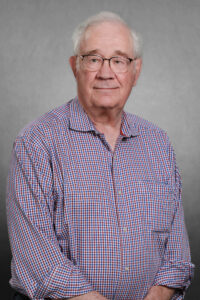
- This event has passed.
Membrane Separation Technologies for Biological Wastewater Treatment
September 26, 2024
Peter Cartwright
This course takes place Thursday, September 26 from 9:00 a.m. – 11:00 a.m. – CDT – 10:00 a.m. – 12:00 Noon – EDT
Full Course (2 hours, .2 CEUs)
$245 AFS Members
$315 Non-members
About the course:
The natural process of biodegradation has been utilized throughout human history for many purposes, from treating sewage to generating certain tasty beverages, and many things in between. There are ubiquitous microorganisms that populate most wastewaters containing dissolved organic contaminants, utilizing them to propagate, and usually producing byproducts such as water salts and gases. In many cases, these byproducts can be recovered and recycled. The crossflow, pressure-driven membrane separation technologies of microfiltration, ultrafiltration, nanofiltration and reverse osmosis provide excellent opportunities for recovery of both treated water and certain byproducts in biodegradable wastewater applications. The production of potable water from municipal sewage promises to significantly impact water shortages in the future and there are several successful installations in place, with more on the way. This two-hour course will address non-municipal applications wherein the feedwater characteristics vary considerably from one manufacturing application to another. As a result, testing and system design requirements must be flexible and innovative.
Multiple design examples are discussed.
Learning Objectives – After taking Membrane Separation Technologies for Biological Wastewater Treatment, the learner will understand:
- The chemistry of bioremediation processes
- Membrane bioreactor (MBR) technology
- Design and operation of MBR systems
Outline:
- Introduction
- Biodegradation Basics
- Membrane Technologies
- Testing Requirements
- System Design Factors
- Case Histories
Who Should Attend:
This course is directed at engineering and other technical personnel who want to understand how these technologies can be integrated into a total treatment system to optimize biodegradation to facilitate water and byproduct recovery.
Instructor:

Mr. Peter Cartwright entered the water purification and wastewater treatment industry in 1974 and has had his own consulting engineering firm since 1980.
He has a degree in Chemical Engineering from the University of Minnesota and is a registered Professional Engineer in that state.
Peter has provided consulting services to several hundred clients globally. He has authored over 300 articles, written several book chapters, presented more than 300 lectures in conferences around the world, and is the recipient of several patents. He also provides extensive expert witness testimony and technology training education.
He is on editorial advisory boards and technical review committees of several trade publications and is a frequent lecturer in numerous technical conferences globally.
Peter is a recipient of the Award of Merit, Lifetime Member Award and Hall of Fame Award from the Water Quality Association and received the 2022 Frank Tiller Award from the American Filtration & Separations Society.
He was the Technical Consultant for the Canadian Water Quality Association from 2007 until 2018.
As the 2016 McEllhiney Distinguished Lecturer for the National Ground Water Research and Educational Foundation, he presented over 35 lectures throughout the world on groundwater contaminant mitigation.
